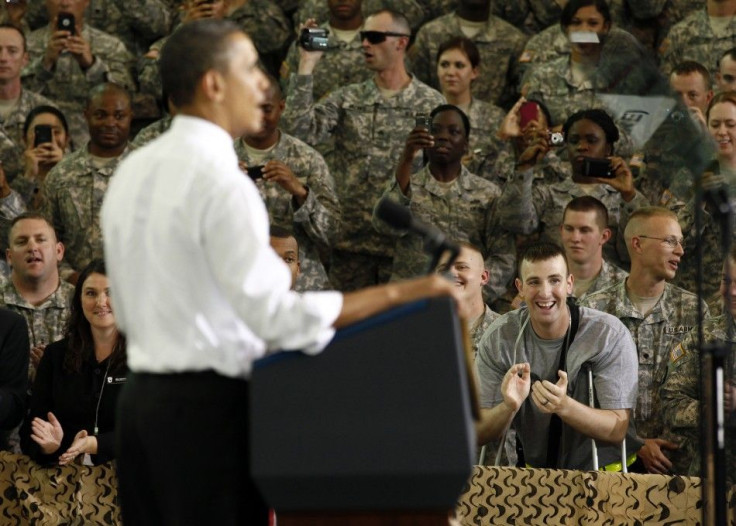Is it good to have more Muslims in US military?

A Lance Corporal Marine Corps reservist was taken into custody on Friday after it was established that he was the person dubiously spotted near the Pentagon and had parked his car in the bushes nearby.
Yonathan Melaku, 22, was arrested as police believed he posed a potential threat to the US military headquarters. Though it was reported earlier that a bag recovered from his car contained ammonium nitrate, ammunition and al Qaeda literature, the police have confirmed it was not true.
It was also revealed that Melaku had been in nearby Arlington National Cemetery overnight. Melaku is a naturalized U.S. citizen who was born in Ethiopia.
According to the police it's an 'unfolding case.' However, the incident has turned the spotlight on the role of Muslims in the US military.
The 9/11 al-Qaeda attacks, and the wars in Afghanistan and Iraq that followed it, presented the US military with a unique problem surrounding military personnel belonging to the Muslim faith.
The military decided to recruit more Muslims, hoping it will contribute to more cultural diversity and lessen prejudices against serving Muslim Americans.
However, the specter of Muslim soldiers being won over by terror ideologies remained a live threat.
And soon the situation became more complex, with the US entering into wars in Afghanistan and Iraq. Muslim soldiers in the US military were severely torn between the sense of national duty and the fear of killing innocent fellow Muslims.
And then, the Fort Hood shooting exasperated the tensions. The fear of Muslim military personnel crossing over to enemy ranks gained slow momentum, increasing the latent tensions.
Maj. Nidal Malik Hasan, who killed 13 people at the Fort Hood shooting, is a case in point. The military could not establish if the mass killing was an act of terrorism while some politicians demanded a probe into the various angles of the crime.
The New York Times had reported that a look into Major Hasan’s life in the military gave insights into the struggles and frustrations felt by other Muslims in the services. He was disillusioned with the wars in Afghanistan and Iraq, which he perceived to be part of a war on Islam, according to interviews with friends and relatives, the report said.
It was revealed later that Maj. Hasan shouted 'Allahu Akbar!' (God is greatest) before opening fire on soldiers at Fort Hood.
Another shocking incident took place in 2003 when Army Sgt. Hasan Akbar killed two soldiers and wounded 14 when he threw a grenade into a tent. Sgt. Akbar, a convert to Islam, was sentenced to death. It emerged that he believed the U.S. military was killing innocent Muslim civilians.
The US military leadership is obviously caught in a tough bargain. As the NYT puts it, the service of Muslim-Americans is more necessary and more complicated than ever before.
© Copyright IBTimes 2025. All rights reserved.





















